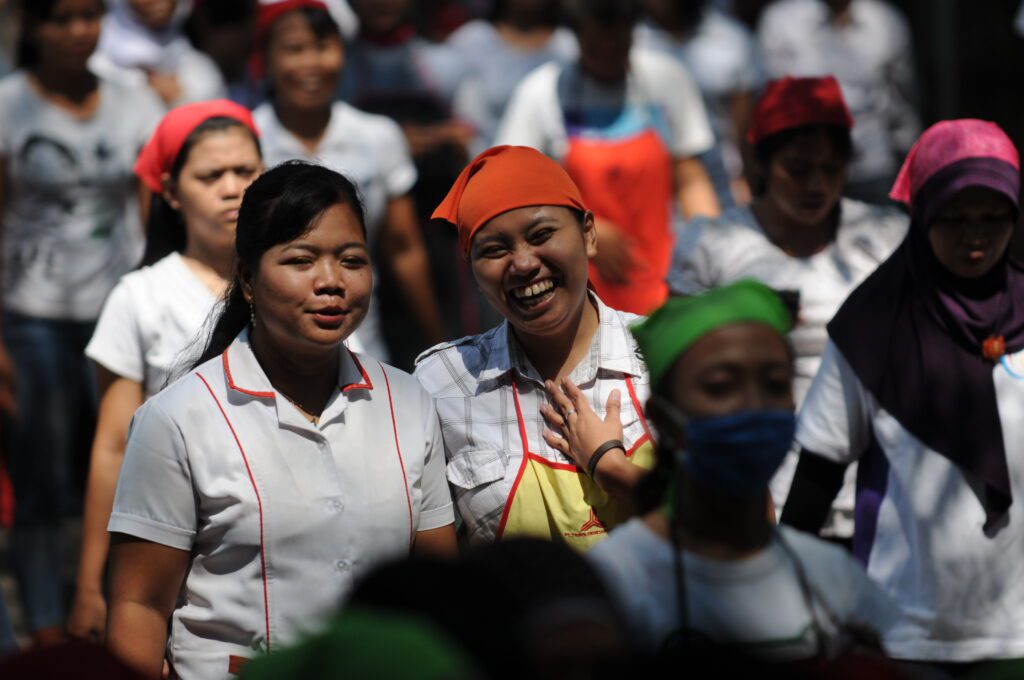BETTER WORK ON BETTER WAGE SYSTEMS


Promoting the industry-wide implementation of wages and working conditions that meet the basic needs of workers presents an opportunity for fashion brands to enhance the prosperity of the economies and people that interact with the value chain.1
Although most fashion brands do not set the wages of production workers, they have a role to play in promoting systemic change, which is needed due to institutional failings.
To do this, fashion brands can work with manufacturers to strengthen compliance and to create mechanisms for transparent record keeping, warrant fair living wages and explore opportunities in areas such as training and digitalisation of payment systems. With the outbreak of COVID-19, wage systems risk becoming secondary given the pandemics strong implications on job security at a global scale. However, research shows that factories and brands that have adhered to employment contracts, implemented employee protection schemes and employed more transparent pay mechanisms have shown great resilience throughout the pandemic.2
With a vision of a garment industry that lifts millions of people out of poverty, Better Work – a partnership between the United Nation’s International Labour Organization (ILO) and the International Finance Corporation (IFC), brings together all levels of the global garment industry to improve working conditions and respect labour rights for workers, while promoting inclusive economic growth.
The Better Work approach creates lasting, positive change to supply chains through factory assessments and training, as well as advocacy and research that changes policies, attitudes and behaviors. Today, the programme partners with international brands and operates in nine manufacturing countries: Cambodia, Indonesia, Vietnam, Bangladesh, Egypt, Jordan, Ethiopia, Haiti, and Nicaragua. By sharing their approach and the results of their on-the groundwork, Better Work seek to influence policy makers and decision makers to promote decent work and better business.
When COVID-19 broke out, workers across manufacturing hotspots became victims to delayed and, in some cases, lost wage payments. As part of its package to address the crisis, the Better Work programme, a partnership between the United Nation’s International Labour Organization (ILO) and the International Finance Corporation (IFC), is actively promoting the use of digital wage payments.
By introducing digital payment systems, occurrences of late and incorrect payments are significantly reduced, granting workers more control over their financial future, in turn acting as an important step for gender equity enabling women to manage their own finances via online banking and e-wallets. Digital wage payments also create an effective mechanism for workers to receive wage subsidies or income replacement payments.
In Jordan, Better Work is collaborating with the United Nations-based Better Than Cash Alliance, the German Development Cooperation (GIZ), and key Jordanian stakeholders to pilot digital wage payments for garment workers.
Following the large investment made by the Jordanian government and financial sector in digital payment technology, Jordanian workers were empowered to open e-wallets remotely enabling them to safely receive government aid and wages during the pandemic. As a result of these coordinated efforts, the number of e-wallets held by workers more than doubled between March and December 2020 reaching a total of 1,255,546 wallets with 1.3 million transactions made by the year end. Mobile money also facilitated access to governmental aid during the pandemic for more than 260,000 families who previously depended on cash.
Based on the successful pilot in Jordan, there are clear benefits for this effort to be scaled to other manufacturing countries, with work currently being explored in Indonesia, Cambodia, and Bangladesh.
To learn more about how you can play a part in moving the garment industry toward wage digitisation, email communications@betterwork.org.
Shifting to digital payment systems presents just one proven way to promote fair and decent wages. Going forward we encourage brands to explore how improvements in areas such as purchasing, productivity, training and data implementation can further contribute to the establishment of improved wage systems and to investigate systems of wage setting.3
To learn more about how you can act, read our Fashion CEO Agenda – Better Wage Systems.
Authored by Global Fashion Agenda.
REFERENCES
1 Global Fashion Agenda. (2021). Fashion CEO Agenda 2021.
2 Global Fashion Agenda. (2021). Fashion CEO Agenda 2021.
3 Global Fashion Agenda. (2021). Fashion CEO Agenda 2021.